Rain Watch for Sept 19-25: Monsoon winding up, La Nià±a risks low
Intensity of monsoon has eased significantly over the past week while kharif harvesting season will begin next month


As monsoon is approaching its end, rainfall has eased in most of the regions. Storage levels in reservoirs are well distributed across key rabi crop-producing regions.
On a cumulative basis, rainfall was 5.4 percent above the long period average (LPA) as of September 22, according to Barclays analysis based on Indian Meteorological Department (IMD) data. This compares to an overall rainfall at 7.7 percent in last week. The intensity of monsoon has eased significantly over the past week, with little to no rainfall in most regions except select parts of the central and northern regions, which continued to receive excess rainfall.
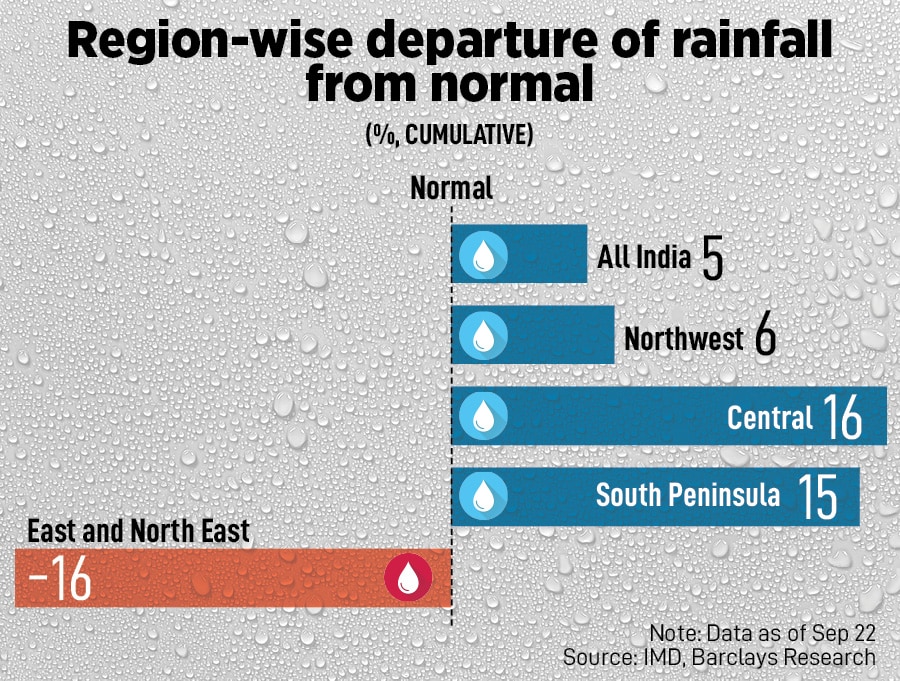 Infofraphics: Mukesh Singh
Infofraphics: Mukesh Singh
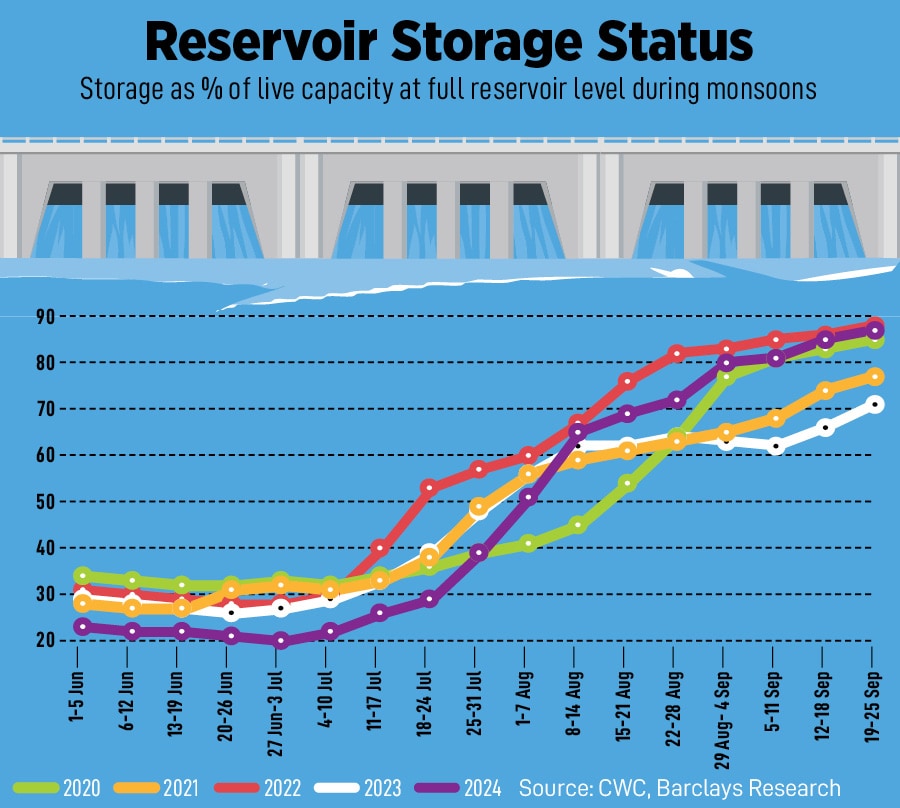
This season, kharif sowing is ending with acreage higher than last year across most crops, barring cotton, says Barclays. As of September 13, the total area sown was 2.2 percent higher compared to previous year. The acreage for rice is 4.2 percent higher, which suggests favourable production this year.
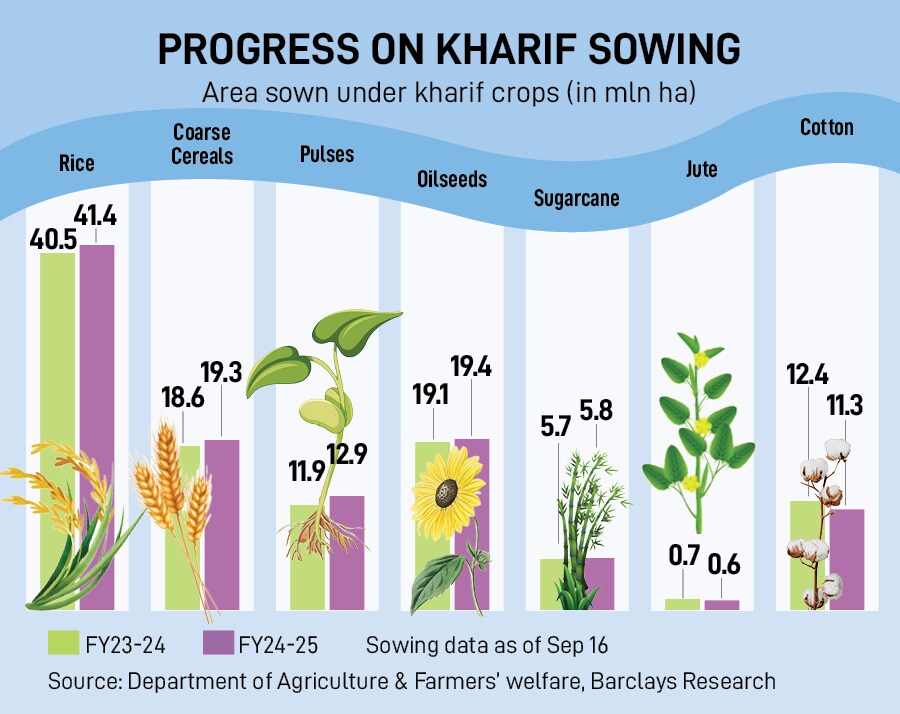
The government is likely to consider easing rice export curbs. India had banned the exports of non-basmati rice in July 2023, following elevated domestic inflation and uneven monsoon rains that year. Rice retail-based inflation is still elevated at 9.5 percent year-on-year (as of August 2024), hence the final decision to lift export curbs will likely be contingent on the first advance estimates of kharif production (to be released in late September or October), says Barclays. The kharif harvesting season will begin next month.
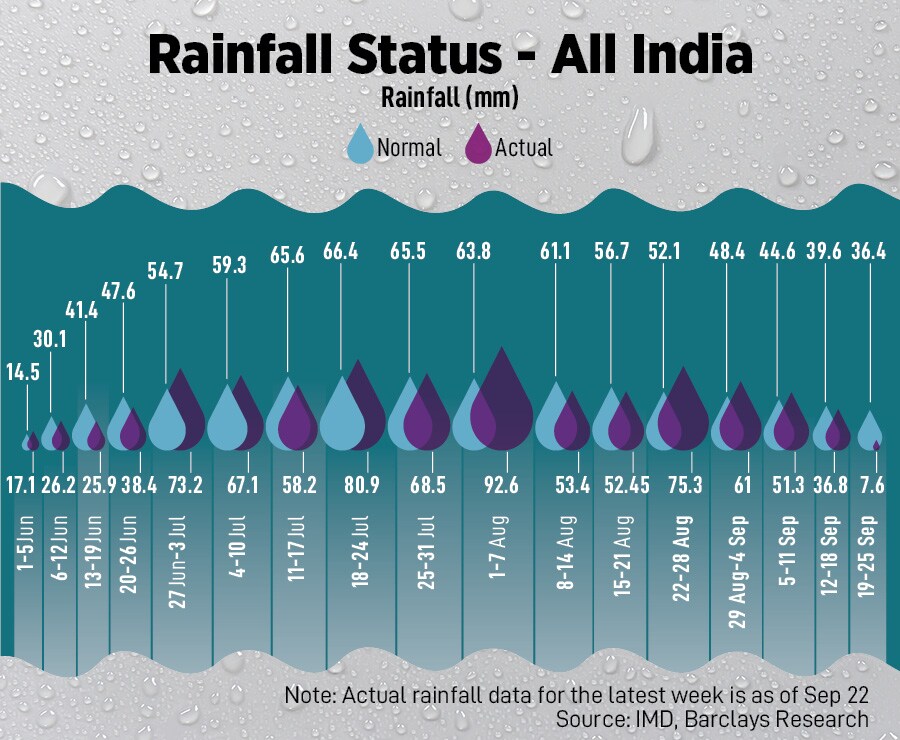
Meanwhile, reservoir storage is above normal levels, increasing to 87 percent of total capacity as of September 19. This translates into 123 percent of the live storage level of the year earlier period and 118 percent of normal storage. The storage is higher than the national average in the northern and western regions.
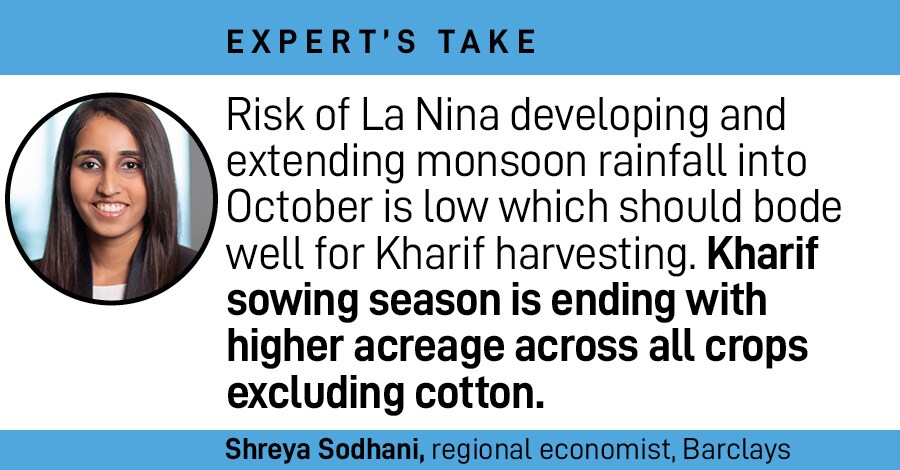
First Published: Sep 25, 2024, 14:47
Subscribe Now